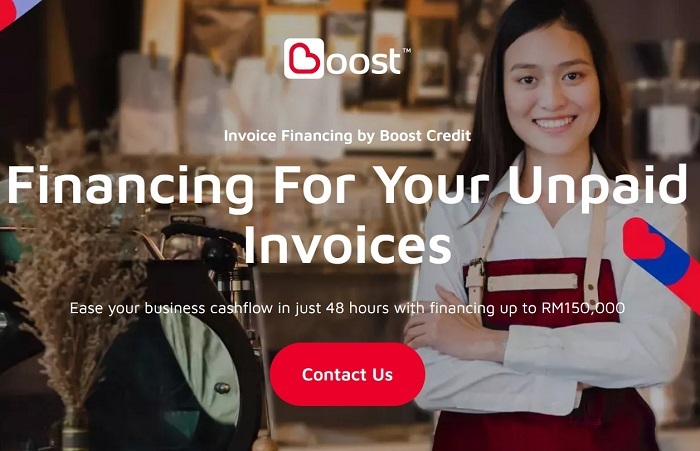- Ideal solutions that are more accessible, affordable, convenient
- Boost’s cross-border payment ecosystem brings together the underserved

Access to financial services is a fundamental component of economic growth and social development. Unfortunately, a significant portion of the global population, particularly in emerging markets, remain underserved or excluded from formal financial services. This could be due to various factors, such as being disqualified due to low-income levels, lack of physical access to banking infrastructure, and inadequate financial literacy.
More than 70% of Southeast Asians (SEA) are underbanked or unbanked, having limited access to financial services. This has tremendous repercussions on economic growth as micro, small and medium enterprises (MSMEs) make up 69% of the labour force, and a critical component of Southeast Asian economies. However, a 2021 study found that over 60% of surveyed MSMEs could not get a loan when they needed financing, limiting their potential for growth.
Lack of financial inclusion also affects quality of life for vast swaths of the population in SEA. Many do not hold bank accounts and transact predominantly in cash, making it difficult to build a credit history that would enable them to access formal financial tools to make more substantial purchases.
However, the meteoric rise of fintech in Asia, and SEA, is rapidly transforming this situation. The region’s high mobile and internet penetration rates, coupled with a growing middle class, create a fertile ground for fintech startups to provide innovative solutions. By leveraging ubiquitous digital and mobile technology, fintech companies are able to provide financial services to people who were previously excluded or underserved by traditional banking channels.
Making Financing More Accessible
The rise of fintech is providing innovative solutions to longstanding problems. Besides making it more efficient for companies to provide financial services, it is also leading to a more accessible and transparent financial system, particularly for the underserved segment of society in Asia.
Fintech solutions such as mobile banking and microcredit facilities, create new opportunities for entrepreneurs, small business owners, and low-income individuals. These solutions are ideal for the needs of the underserved population as they are more accessible, affordable, and convenient than traditional banking services, enabling millions of people to access financial services for the first time.
To this end, Boost’s cross-border payment ecosystem powered by Boost Connect is bringing together underserved consumers and business in the Asian region with our suite of solutions. Boost has rolled out Direct Carrier Billing (DCB) across multiple mobile carriers across Asia. DCB provides a convenient, secure, and accessible payment option that enables over a billion users to make purchases simply by charging the cost to their mobile phone bill.
For example, Boost worked closely with Robi, the second largest mobile network operator in Bangladesh to enable digital payments through DCB. This opened a whole new world of possibilities as credit card penetration is only 0.2% in Bangladesh, while 47% of the population owned a smartphone as of end 2021. So while many users could access digital products and services, they didn’t have a method to pay for them. With the Boost DCB solution, more than 54 million Robi subscribers have paid for their digital purchases by simply charging them to their phone bill.
Delving deeper into the underserved consumers’ needs, Boost’s internal research showed that a high number of customers in Southeast Asia had incomplete digital content transactions due to insufficient prepaid balance. Boost’s innovative solution called Boost Stretch was developed to address this issue by providing a credit loan facility to enable customers to complete their digital content purchases and pay back the loan in their next prepaid top-up cycle. Stretch is also able to facilitate Credit Advance through DCB, giving customers a seamless experience in their digital transactions.
Cutting-Edge Technology and Convenient Solutions For The Underserved
For businesses, fintech solutions pave the way for an entire segment of consumers who may not have had the ability to make purchases with them before.
A collaboration between Boost’s cross-border payment ecosystem and AI-powered micro-financing business, provides tailored financial solutions to underserved communities in the region. These products are designed to address the unique challenges faced by small businesses, distributors, and merchants, who often struggle to access credit and financing from traditional financial institutions.
These micro- financing solutions include Invoice Financing for Distributors, which allows distributors to finance their collective invoices by paying vendors upfront; Supply Chain Financing for Merchant Network, which provides upfront financing to distributors to finance their merchant inventory orders; Capital X for Merchants, which offers working capital loan to small businesses to help them manage their short-term cash flow needs; and Capital for Merchants, which provides a 12-month working capital loan to small businesses repaid through monthly installments.
Overall, these micro financing products help to bridge the gap in access to credit and financing for the underserved populations in the region, from consumers to micro SMEs. By empowering these groups to grow their businesses, create jobs, and enjoy a better quality of life, Boost the regional full spectrum fintech player is inspiring them to be unstoppable.
